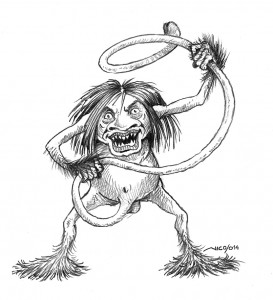“When somebody’s house has a lot of crows, we say that the woman of the house is a bruja. I know your Mom is not a bruja. *laughs* She has been very kind to me. When I was younger in Mexico, nobody would want crows near their house because they did not want to be a bruja.”
Context: This piece of Mexican superstition was collected in the home of the collector by a woman who has been working for the collectors family for over 12 years. The superstition or warning was brought up due to a crow infestation surrounding the collectors house for a number of weeks. The housekeeper (who will be named RM) speaks English poorly as her second language, and she uses the word “bruja” which is Spanish for witch.
Informant Analysis: She said that she first learned of this superstition growing up in Mexico City, Mexico from her friends and family. She cannot remember when she first learned it or who exactly told it to her, but she says this was a common superstition told around the time she was a teenager. Although she viewed the superstition as not true, she still had some fear of my mother being called a witch.
Collector Analysis: Although I also agree that crows surrounding a person’s home does not signify that the woman of the house is a witch, I do believe that the crux of this folklore is remembered because alienation from neighbors or one’s community is a real fear. This superstition seems to point out the alienation of a woman in particular, which perhaps has something to do with the women tending to take care of the home and family while the men left for work. The crow in itself seems like a common theme for witches in other folklore, and seeing as though the crow can be seen as a predator that eats dead animals, the fact that crows are nearby would signify death of some sort. Put together, my interpretation is that crows announce death, and the location of crows around a home perhaps would signify the woman of the house being evil and closely tied with death.


